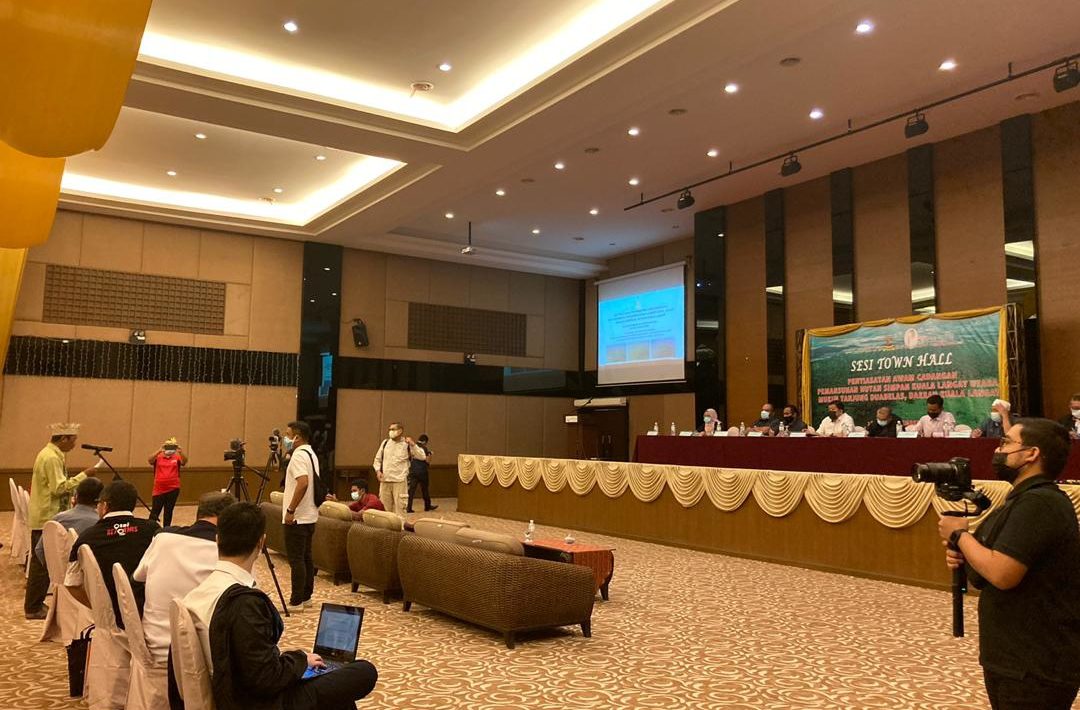Amnesty International Malaysia supports the Orang Asli community’s fight against yet another threat of having their homes and customary land taken away from them. At the public hearing on the degazzetement of Kuala Langat Northern Forest Reserve (KLNFR) today, those living in surrounding villages voiced their objections to the government’s proposal to clear the land for development, which would have devastating effects on both the Orang Asli people and the environment. In support, over a hundred of Amnesty International members and supporters have participated in the Urgent Action objecting to the proposed degazetting, and we reiterated our concerns at the hearing today:
Amnesty International Malaysia, a human rights organisation with over 500 members and thousands of supporters, is very concerned by this plan to degazette the Kuala Langat Northern Forest Reserve. Our members and supporters sent over a hundred emails and letters to the Selangor state government voicing their objection.
The organisation would like to put on record our concern that more than 930 hectares of ancestral land customarily claimed by the largely Temuan Orang Asli community in Malaysia is at risk of having its status as a “forest reserve” removed, resulting in some 1,000 people being dispossessed of their land for development projects.
Our concerns are primarily in two areas: the rights of indigenous peoples, in this case the Temuan Orang Asli, and the environmental impact of degazetting the forest reserve.
First, the rights of the Orang Asli. In 2017, the Department of Orang Asli Development (JAKOA) applied for this area to be gazetted as Orang Asli land, but this has yet to be fulfilled. Regardless, as we have seen in the case of Sagong Tasi, the High Court confirmed the existence of Orang Asli native title under common law, even if it is not registered. The Temuan people have been living in this land since before independence and deserve to have their land rights respected.
According to the community, the state made no effort to inform them of the nature, extent, and social and environmental impacts of the degazetting, or discuss alternatives. In fact, they say the first time the heard about the proposed degazetting was when they read the notice in the newspaper in February. And they claim there has been little effort to consult with them since. It is insufficient to obtain the agreement of the Tok Batin alone.
This lack of consultation violates the principle of free, prior and informed consent as stated in the United Nations Declaration of the Rights of Indigenous Peoples (UNDRIP), which Malaysia has committed to. UNDRIP also says the state has a responsibility to provide effective prevention of any action which has the aim or effect of dispossessing them of their lands, territories or resources. This means the government should be protecting the Orang Asli and their land, not working against their interest.
From the environmental perspective, KLNFR is also a peat swamp forest that functions as an important ecosystem of climate control. Peatlands are a type of wetlands which are among the most valuable ecosystems on Earth: they are critical for preserving global biodiversity, provide safe drinking water, minimise flood risk and help address climate change. Furthermore, the proposed de-gazettement of KLNFR is not in line with the Selangor State Government’s plan in the 2035 State Structure Plan to maintain 32% of the forest area in the State of Selangor.
On behalf of Amnesty International Malaysia, we call on the Selangor Government to:
Immediately cease the order to degazette KLNFR as forest reserve;
Work with the Department of Orang Asli Development and take immediate and concrete steps to ensure that KLNFR is gazetted as Orang Asli land by the end of the year;
Ensure the full participation of the Temuan Indigenous community and obtain their free, prior and informed consent in all plans around the compliance of the gazetting of KLNFR; and
Adhere to the principles of UNDRIP in all future engagements with the Orang Asli community, in particular the principle of “free, prior and informed consent.”


